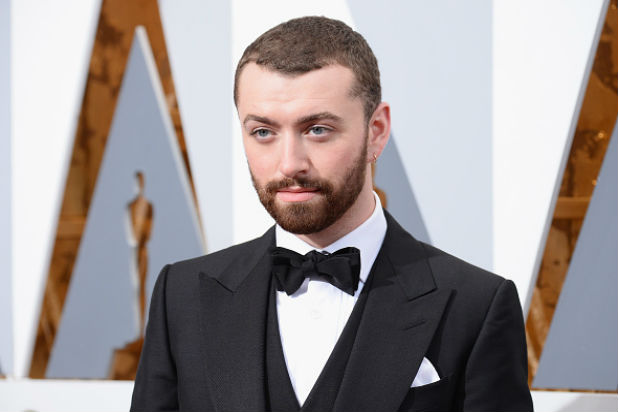In the rush to turn to Leonardo DiCaprio’s overdue Oscar win into a meme, the disastrous acceptance speech by Sam Smith has gone slightly overlooked. To recap: the Bond theme singer had previously misunderstood an interview with Sir Ian McKellen and publically declared his own belief to be the first openly gay Oscar winner, overlooking many figures such as Melissa Etheridge and Elton John. Another previous winner, Dustin Lance Black, took to Twitter to voice his annoyance, telling Smith, “if you have no idea who I am, it may be time to stop texting my fiancé,” referring to his partner, Olympic diver Tom Daley. To be fair to Smith, his exact speech went: “if this is the case, even if it isn’t the case, I want to dedicate this to the LGBT community all around the world” – OK, so the boy didn’t do his research, but his speech hedged its bets enough to allow him a get-out clause, and LGBT visibility can never be a bad thing, especially in such a grand, public arena. But is Sam Smith really the best poster-boy we have for modern gay identity in pop music?
Maybe he is. We’ve had gay pop stars before – from Frankie Goes To Hollywood to Will Young, the history of British pop is littered with queer icons. But it’s only really in the past ten years have they been presented in a normal way: the 80’s pop figures were seen as subversive and challenging to the mainstream hetero culture, a threat for no other reason than their bedroom habits. David Bowie looked the part but spent the majority of his adult life married to a beautiful woman, Pete Burns built himself into a caricature and Boy George evaded the question as long as possible. Now, identifying as LGBT appears incidental. Both Boyzone’s Stephen Gately and Ocean Colour Scene’s Simon Fowler were forced out the closet by the press, but thanks to their personal sacrifices we live with the privilege that Smith doesn’t have to hide his sexuality and a boyband like Union J can have an openly gay member. Smith is the apex of gay acceptance, a prime-time-friendly soul balladeer whose complete absence of danger makes him an easy sell.
So why does Smith seem so unsatisfying as a gay icon? Well, for one, his songs are neutral enough to exist outside the gay experience. The pronouns are “you” and “I” instead of the gender-specific “he”, and the themes of love lost and heartbreak are broad enough to be applicable to a universal audience. Smith’s music veers towards the unadventurous and uninspired, all slow tempos and mawkish displays of affectation. Nobody needs someone this boring to speak for them.
More problematically, Smith has gone on record criticising gay men who use dating apps like Grindr and Tinder as hook-up services, saying they are “ruining romance.” It’s a conservative approach to love, equating casual sex and multiple partners with improper moral conduct (just to be clear, it’s not: in a liberal society people are free to do what they want if it doesn’t hurt anyone). Smith is gay, but he’s not one of those gays who does anything gay, like defiantly fall for men or have sex. It’s a neutered take on sexuality defined by straight audiences. This is as much the fault of listeners as it is the fault of performers: witness the career avalanche of George Michael, whose attempts to remain relevant while keeping an edge of risqué sexuality have done nothing to endear him to the audience who previously loved him.
Smith is playing the game: a balance of gay visibility that’s neither confrontational nor alienating. But there are other models. Years & Years have made a huge impact on British pop in the last twelve months, with openly gay vocalist Olly Alexander becoming a focal point. At the risk of assigning labels, Alexander is an obviously effete man (“camp”), oozing charisma and using his platform to speak eloquently about mental health issues and LGBT issues. The band’s debut album Communion is a proud album, the kind of thing that would support any teenager finding their identity, framing the advent of sexuality and initial forays into love as a mix of desire, shame, nervousness and self-assurance. That experience of youthful discovery is unique to the gay experience, as anyone who has ever had to question or second-guess their natural feelings can explain. Alexander’s lack of self-belief and confidence is what makes him so relatable, and what makes Years & Years’ music so powerful. Smith wants to dedicate his Oscar win to LGBT communities around the world: whether it’s through pride, lust, fear or simple experience, it would serve those audiences far better if he learned to identify with them.




